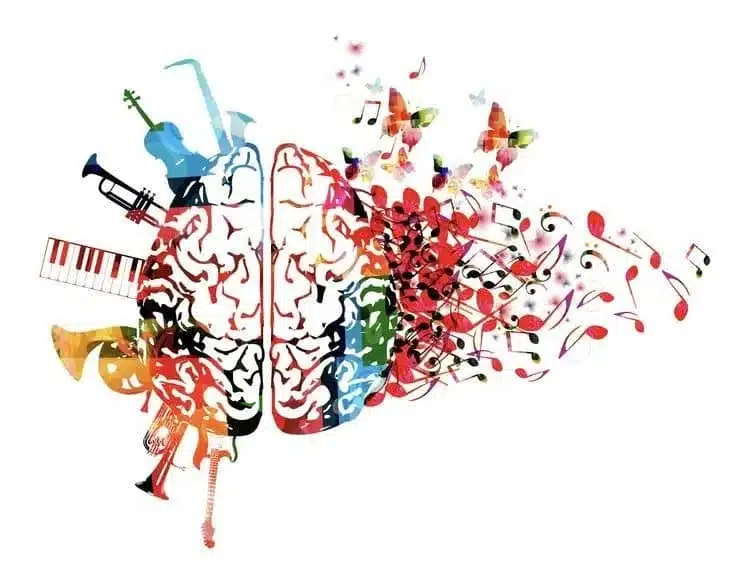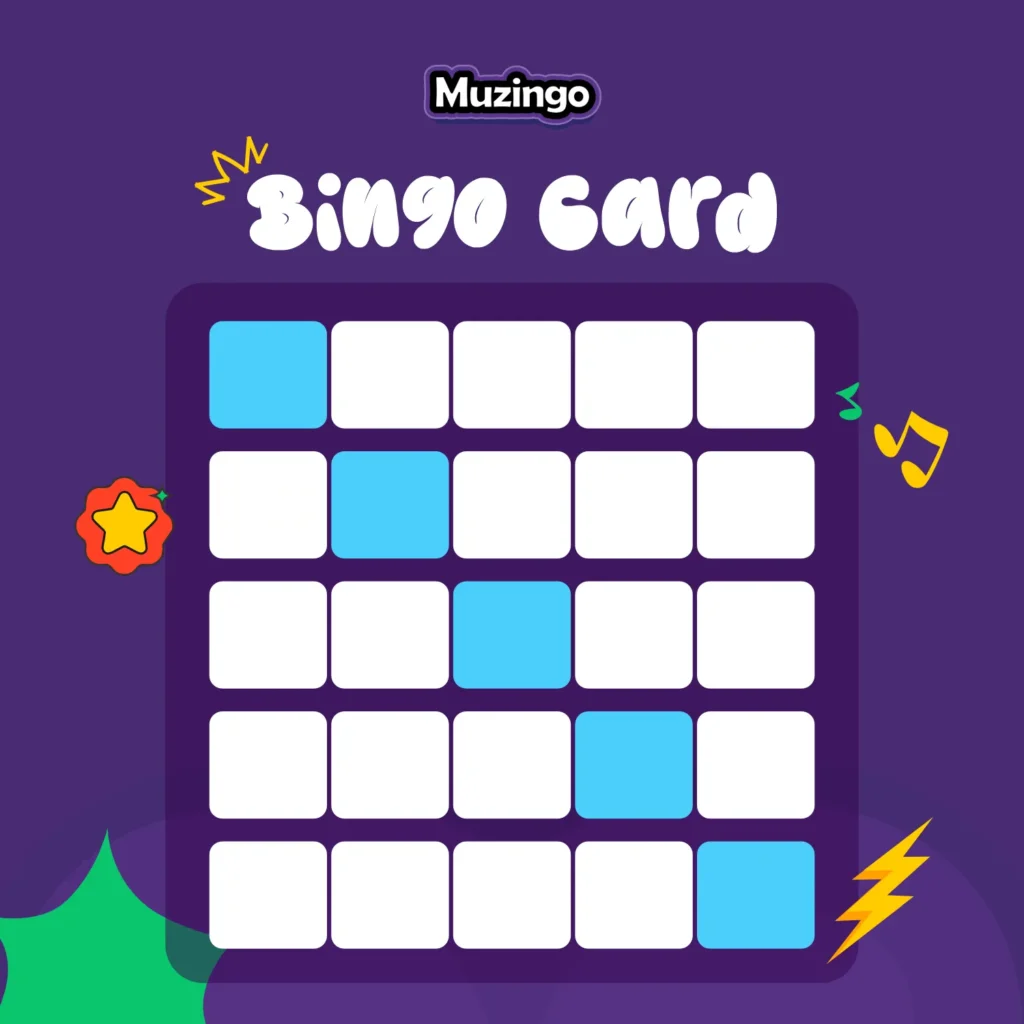
Image by Istrella on Pinterest
According to a quote by Kahlil Gibran, “Music is the language of the spirit.”
It’s a universal language that unlocks the key to a happy life, eradicating conflict and bringing forth peace.
From the melodies that move us to the music game’s rhythm that energizes us, music has long been recognized for its power to bring us joy.
Whether in our daily lives or entertainment, music has the capability of cultivating deep joy within us, evoking emotions and memories, influencing mood and enhancing cognitive functions.
But what happens when you combine the power of music with the thrill of gaming?
You get music games! This combination provides a dynamic and captivating experience for learning, pleasure, and even mental health music therapy.
From music in video games that heightens suspense and excitement to game music that reinforces emotions, and soundtracks and interactive music designs that deepen player engagement.
This article will discuss the fascinating connection between music and gaming, uncover the powerful, research-backed benefits of music games and highlight how Muzingo, a unique blend of music and bingo, is redefining interactive music experiences.
Let’s get started.
RELATED BLOG POSTS
- HOW TO CREATE THE ULTIMATE MUSIC BINGO CARD
- THE MUSICIAN GUIDE TO BINGO: WHY IT’S MORE THAN A GAME
- TOP 10 MUSIC GAMES TO PLAY
- BINGO: THE GAME THAT TOOK THE WORLD BY STORM
What are Music Games?
A music video game is referred to as a music game.
Music games are a genre that integrates musical elements into the core mechanics of gameplay. These games often encompass various facets of musical experience, such as creating, performing, listening or matching music.
Players can connect with music in a more immersive and dynamic way, thanks to music games, which provide a unique combination of entertainment and musical education.
Music games serve a wide range of audiences, from those seeking an enjoyable gaming experience to those searching for an avenue to develop and hone their musical abilities.
Psychology of Music and Gaming: How Sound Shapes Our Experience.
Music and gaming share a deep psychological connection. They influence how you feel, think, and interact with the virtual world.
It can transform your world as a player and keep your attention on the game.
Whether it is an adrenaline-pumping experience you feel during a battle-themed game or a soothing background melody, the right music sets the mood and scene, enhancing your focus and emotional engagement in gaming.
Research shows that the interplay between music and gaming enhances immersion, influences decision-making, and even improves cognitive abilities.
1. Emotional Influence: Music Sets the Mood
Studies have shown that music triggers the release of dopamine, which is the same hormone associated with pleasure and reward.
This explains why you feel exhilarated during intense battle scenes.
Dynamic soundtracks which adapt to in-game actions further amplify your focus. For instance, research on adaptive game music found that when a game’s music changes based on the player’s choices, it increases engagement and emotional connection.
This psychological phenomenon is why horror games use eerie, unpredictable sounds to build tension and why adventure games use uplifting orchestral scores to evoke excitement.
2. The Role of Music Games in Mental Health and Well-Being
Is music and gaming just about entertainment? Of course not! Beyond entertainment, they have therapeutic benefits.
Therapists have long recognized mental health music therapy as a tool for reducing anxiety and stress, and games that integrate music can produce similar effects.
A study in Frontiers in Psychology found that music games rhythm can decrease cortisol levels, the body’s primary stress hormone, thereby promoting relaxation and emotional balance.
Music games also foster a sense of accomplishment and social connection.
Multiplayer rhythm games like Muzingo provide a communal space where players can bond through Music, reinforcing social ties and enhancing emotional well-being.
3. Cognitive Boost: Enhancing Focus and Memory
The interplay between music and gaming can help improve cognitive functions like memory, attention and problem-solving.
Background music fosters a flow state keeping players engaged for extended periods.
Also, certain sound cues reinforce learning and muscle memory. Music’s rhythmic and melodic patterns improve memory by creating associations between sounds and events.
4. Immersion: The Power of Audio-Visual Synchronization

Image by Banuka Kannangara on Pinterest
A major reason why music and gaming go hand in hand is their ability to transport you into fully immersive worlds.
It’s the reason why you get lost and begin to lose count of the number of hours spent playing a music game.
Take Your Game Nights to the Next Level
Muzingo is a fun game where players listen to music tracks and match them to bingo cards — competing to win prizes with friends.
Play Muzingo FreeNo Card Required
Dynamic music reacts in real-time to in-game events, making experiences more lifelike.
Also, silence when used effectively can be just as powerful as it heightens tension before a big moment.
5. Social Connection and Music Bonding
One of the most exciting aspects of music and gaming is how they bring people together.
Music games foster a sense of community and teamwork, whether through moments of competing with a friend or loved one or shared experiences.
Sound cues in multiplayer games enhance nonverbal communication helping teams coordinate and communicate in a manner that transcends language.
Enhancing Gameplay Through Music: The Muzingo Experience

Music and gaming work together to actively shape gameplay mechanics which influences how you interact with the game world.
This relationship goes beyond passive listening; it affects pacing, decision making and engagement.
Music as a Gameplay Mechanic
Unlike traditional games where music plays a passive role, Muzingo makes music the star of the show.
As a player, you engage with the sound in a music game rhythm that blends the elements of bingo and music. This helps to improve reflexes and auditory processing.
Similar to Beat Sabre or Guitar Hero, Muzingo makes listening an engaging and involved experience by testing the player’s ability to identify songs, match musical patterns and maintain rhythm.
Muzingo is not only entertaining but also a cognitive booster because studies indicate that rhythm-based games enhance auditory and reaction speed.
Music and Player’s Behaviour

Image by Josary Manga on Pinterest
Muzingo carefully chooses its music to influence the player’s mood, much like racing games do with their upbeat soundtracks to create excitement.
Fast-paced, upbeat music creates an exciting, competitive environment that forces you to think fast and respond quickly.
Slower, more melodic music, on the other hand, can create a relaxed, social gaming experience perfect for unwinding and enjoying music with friends.
Research shows that music tempo affects risk-taking and focus levels in gaming which is why Muzingo curates its playlists with care to balance engagement and enjoyment.
Music as a Storytelling Tool in Music Games
Just as in films, music in video games plays a pivotal role in storytelling, helping to convey emotions, foreshadow events and deepen the narrative experience.
Setting the tone and atmosphere
Music communicates the emotional weight of a scene without delay.
For example, the melancholic piano score in The Last of Us enhances its themes of loss and survival, while the triumphant orchestration in The Legend of Zelda series reinforces the spirit of adventure.
The ability of music and gaming to work together in this way makes storytelling more immersive.
Interactive Music that Adapts to the Player
Muzingo’s capability to produce a customized, dynamic music experience is one of its best qualities.
In addition to playing music, the game responds to the way you, as a player, interact with it.
Each round of Muzingo seems dynamic and new because it adapts its playlist flow according to the player’s activities.
Muzingo transforms how you enjoy sound in digital entertainment. It combines music and games in a way that is participatory and interactive.
CONCLUSION
Music and gaming work well together. Creators use music to tell stories, enhance gameplay, and evoke emotions.
Music is key to creating an immersive game experience. It can heighten suspense, guide your actions as a player or evoke deep emotions.
Key Takeaways
- Music enhances gameplay mechanics, making interactions more engaging and rewarding.
- It influences player emotions, mood, and decision-making.
- Games like Muzingo transform music into an interactive and competitive experience.
- Music acts as a storytelling tool, strengthening emotional connections in games.
Next time you play your favourite game, pay close attention to how the music shapes your experience. How does it make you feel? How does it guide your decisions? You’ll be surprised by how much impact it has.
CTA: Try Muzingo today and feel the rhythm of gaming in a whole new way! Explore Muzingo Now.
READ MORE: HOW TO CREATE THE ULTIMATE MUSIC BINGO CARD


